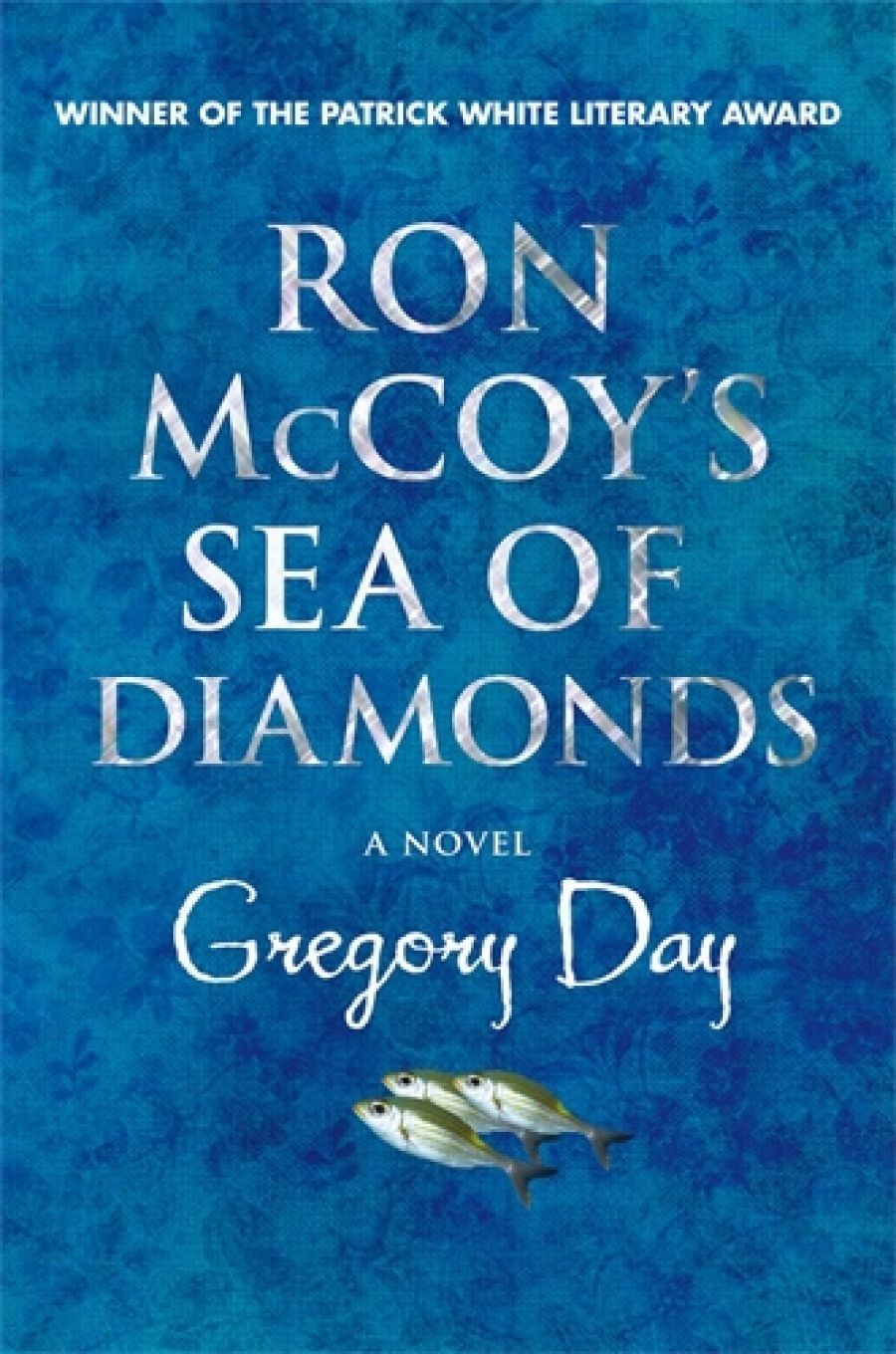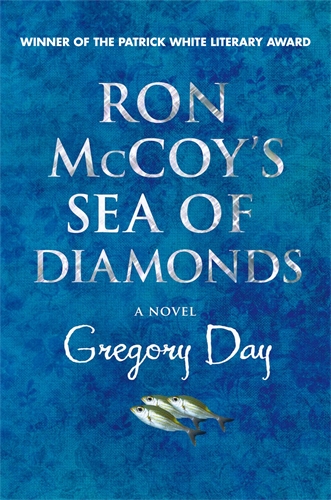
- Free Article: No
- Review Article: Yes
- Online Only: No
- Custom Highlight Text:
Some writers are wary of bookshops. It is not the bright lights or the sharp smell of all that new ink, increasingly mingled these days with the aroma of fresh coffee: it is just the sight of all those books – thousands of them. ‘Why am I doing this?’ they think. ‘Does the world really need yet another book? What’s the point of it all?’ But then they read a new novel – it might even be a best-seller or have won a major prize – and think, ‘No, it’s OK. I can do as well as that, and maybe if I try hard enough I can even do better.’ So they keep writing.
- Book 1 Title: Ron McCoy’s Sea of Diamonds
- Book 1 Biblio: Picador, $32.95 pb, 310 pp
- Book 1 Cover Small (400 x 600):

- Book 1 Cover (800 x 1200):

We are back in the fictional town of Mangowak, a small settlement on the Victorian coast somewhere west of Geelong, where Day’s previous novel The Patron Saint of Eels (2005) was set.
Ron McCoy has been living round these parts all his seventy-plus years. He gets by with a bit of this and a bit of that, and spends his evenings playing cards and drinking stout with his mate Sweet William, or playing old songs on his pump organ. Ron knows where the bristlebirds nest and when the bream are biting. He also knows that the small farm that he and his elderly mother are sitting on is worth a small fortune to developers, as does Colin Batty, the local real estate agent.
The town and its tranquil environs are inhabited by a variety of other characters most of whom have arrived more recently. Craig Wilson, a guitar-playing, surf-loving romantic who can’t decide whether his job as Colin Batty’s offsider is what he’s cut out for, grew up in a nearby town and doesn’t feel he really fits in. His wife like Mangowak and doesn’t mind the money, but gets more out of yoga and meditation. Even more recently arrived is Melbourne millionaire Dom Khouri, with whom old Ron strikes up an unlikely friendship. He makes Ron an offer for half his land and starts building his dream house next door. But even in paradise, with big money around, is everyone really what they seem?
Day has assembled the ingredients for a good story and he makes the most of them, but what I found particularly attractive was his use of language and description of place. One morning Ron is drawn to the beach before sunrise. In the starlight he sees the river, banked up behind a dune, burst open to the sea with ‘a boom from deep in the logic of the water and the land’. Another time, Ron is out fishing for trevally with some mates, ‘with the ocean skin clinking peacefully on the metal drum of the boat’s hull and the occasional falling star cascading through the night, helping them order and evaluate their dreams and desires’. As most fishermen know, fishing isn’t really about catching fish.
The only criticisms I have of the novel are minor, and they all concern ants. Ants – or at least one particular ant – are of some importance to the plot. Perhaps it was unfair to ask an ex-entomologist to review this novel, but when Day talks about bull-ant nests being ‘granulated’ and looking like couscous, I can’t help thinking he is confusing them with meat-ant nests. Bull-ant nests are just holes in the ground. And when Liz is ‘bitten’ (actually stung) by an ant, and there is some controversy about whether it was a bull-ant or a skip-jack ant, it really wouldn’t matter much. I’ve been stung by both, and they are equally agonising. And finally – 1 have been waiting years to impart this piece of useful information in print – the brand name of the kitchen laminate known as Formica has nothing to do with the Latin name for ants or the formic acid in their venom. The material was originally developed as an electrical insulator and proved an excellent substitute for mica.
Like all good novels with a strong sense of place, Ron McCoy’s Sea of Diamonds both celebrates and transcends its location. While the author firmly and skilfully places us on the west coast of Victoria, the story he is telling could be happening anywhere and at any time. It is a story of finding yourself. I am pleased to have found Gregory Day.


Comments powered by CComment